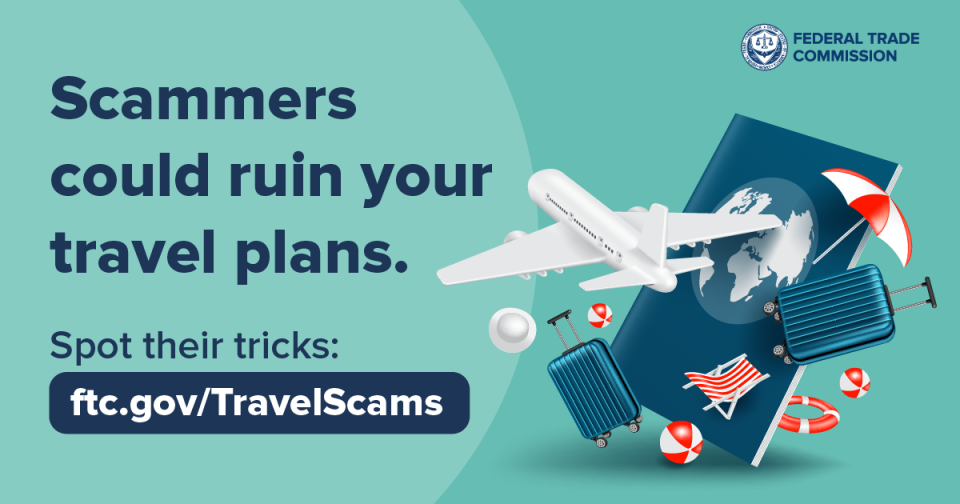When you’re planning a trip — whether it’s a last-minute spring break vacation or another trip — you might be tempted to jump on an offer for a great deal. Unfortunately, scammers sometimes hide behind those offers. Their goal? To try to steal your money. Here’s how it could play out.
You might get a call about a “free” vacation, but they say you have to pay fees. (Which, of course, means it’s not really free.) Maybe you get an email for a travel package at a low, low price, but the organizer won’t give you the specifics. Like where you’d be staying. Those offers might be scams. Not only could your dream vacation turn into a nightmare, but if you pay, it’ll be hard to get your money back.
How to avoid a travel scam:
- Do some research. Look up the name of the travel company or agent with the words “scam,” “review,” or “complaint” to see what others say about them.
- Don’t sign or pay until you have specific details. Ask for the exact address of the hotel or resort so you can research it independently. Also, get copies of the cancellation and return policies before you sign or pay.
- Don’t pay with wire transfer, gift cards, or cryptocurrency. Dishonest travel package promoters will ask you to pay in one of these ways, but that’s a sure sign of a scam.
Learn more at ftc.gov/TravelScams. Spot a scam? Tell the FTC at ReportFraud.ftc.gov

